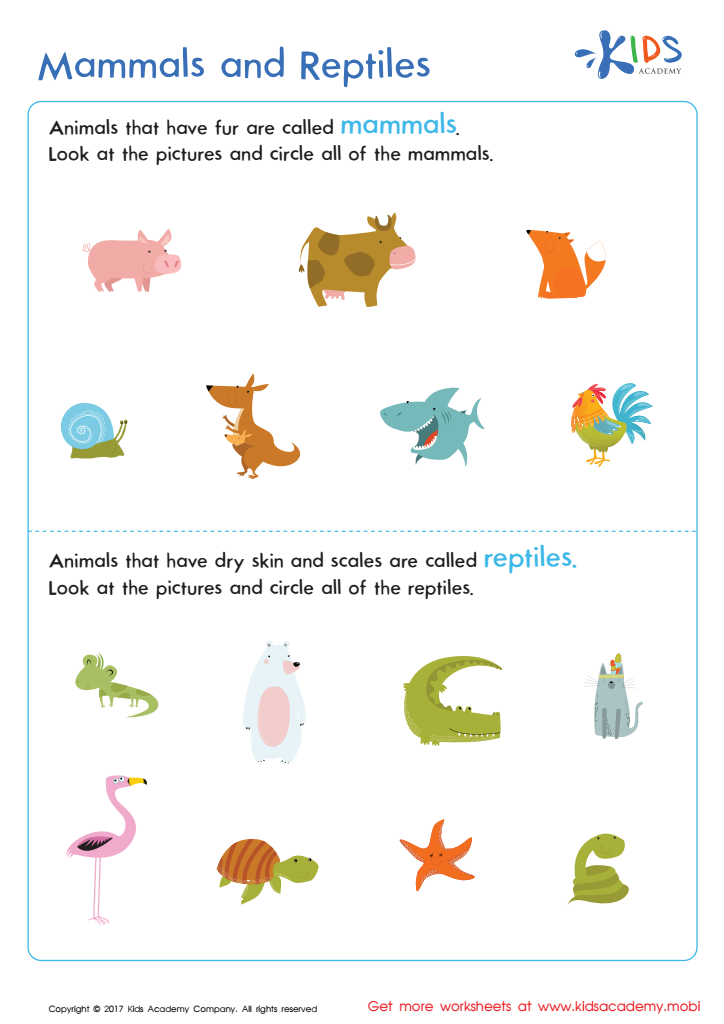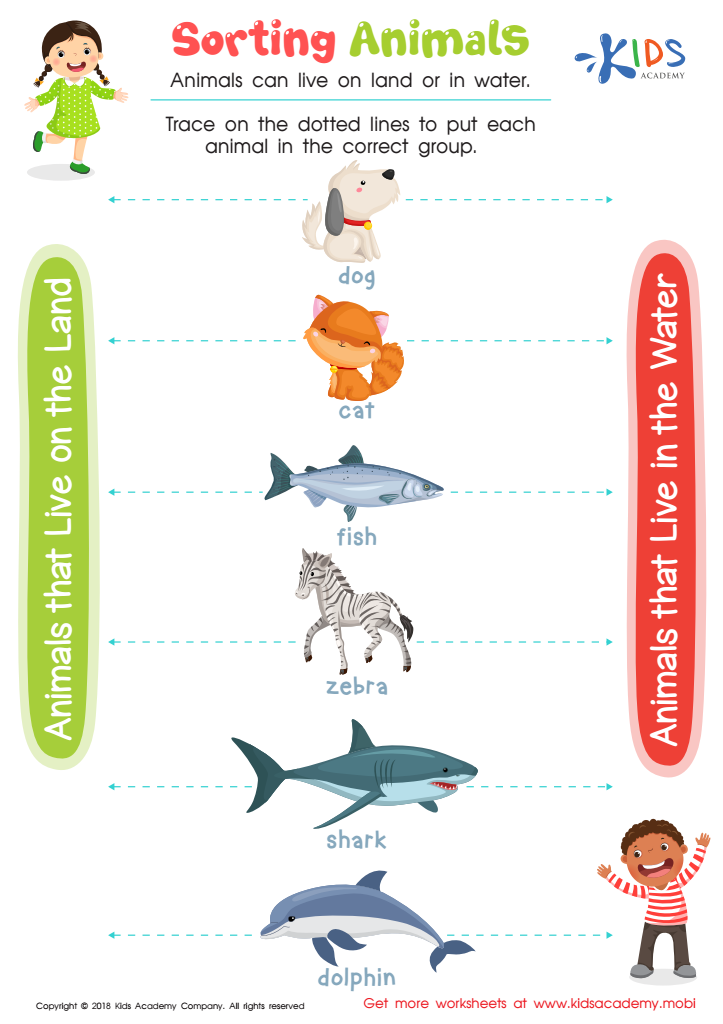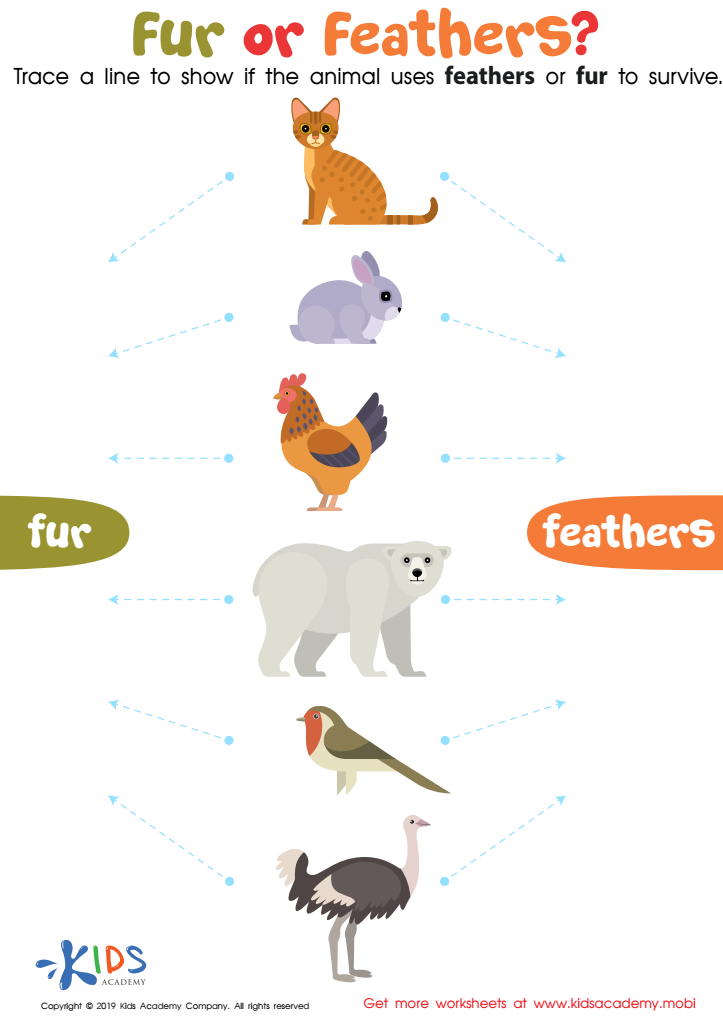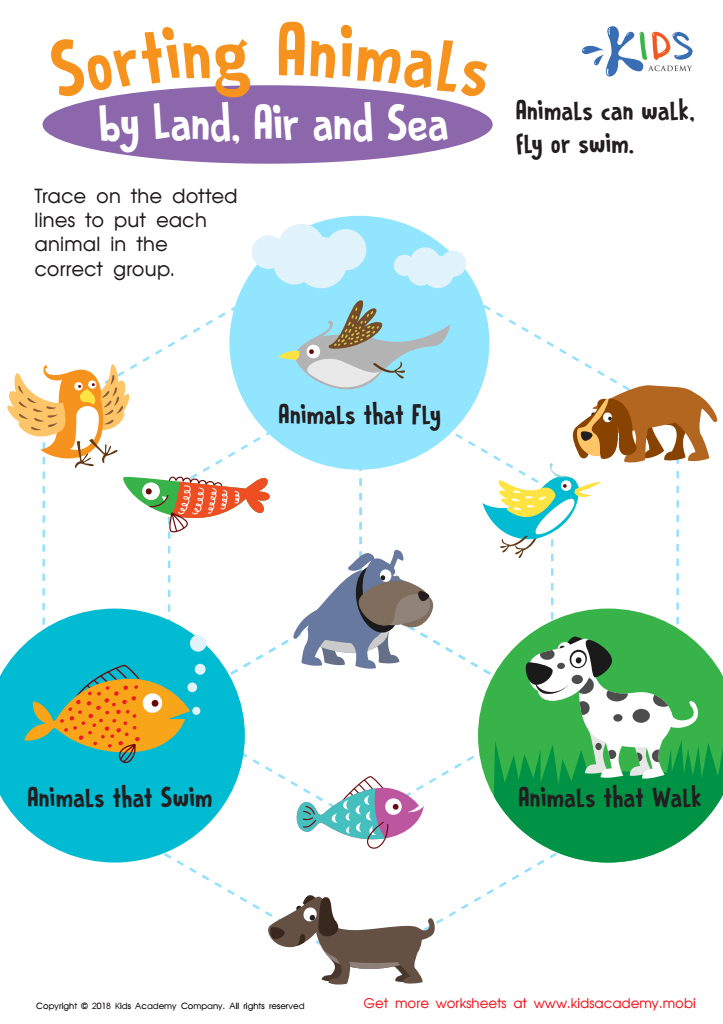Animal Classification Science Worksheets for Ages 3-5
4 filtered results
-
From - To
Unlock the wonders of the animal kingdom with our engaging Animal Classification Science Worksheets for ages 3-5! Designed to spark curiosity in young minds, these interactive worksheets introduce children to basic animal classification concepts, including distinguishing between mammals, reptiles, birds, and more. By integrating playful illustrations and fun activities, kids will develop critical thinking and observational skills while learning about various animal traits and habitats. Perfect for preschool and kindergarten science lessons, our worksheets provide a strong foundation in early science education. Dive into the adventure of discovery and watch your little learners’ imaginations soar as they explore the incredible world of animals!


Mammals and Reptiles Worksheet


Sorting Animals Worksheet


Fur or Feathers? Worksheet


Sorting Animals by Land, Air and Sea Worksheet
Understanding animal classification is vital for young children aged 3-5, as it lays the foundation for scientific knowledge and critical thinking. Introducing these concepts promotes curiosity about the natural world, encouraging children to explore and ask questions. Familiarity with animal classifications, such as mammals, birds, reptiles, amphibians, and fish, enhances vocabulary and cognitive development, providing students with language skills to articulate their thoughts and observations.
By engaging in animal classification, children develop skills in observation and categorization, key components in early science education. This activity fosters their ability to differentiate between species, recognize characteristics, and understand the diversity of life on Earth. It also supports social-emotional learning by nurturing empathy; when children comprehend the needs and habitats of various animals, they cultivate a sense of responsibility and respect for living creatures.
Moreover, learning through play, such as matching games or nature walks, makes education enjoyable and memorable. This hands-on approach ensures that children retain information while making personal connections with the subject matter. Ultimately, teaching animal classification enriches a child’s learning experience, sparking lifelong interests in science, nature, and environmental stewardship, which are essential values for future generations.

 Assign to My Students
Assign to My Students




















